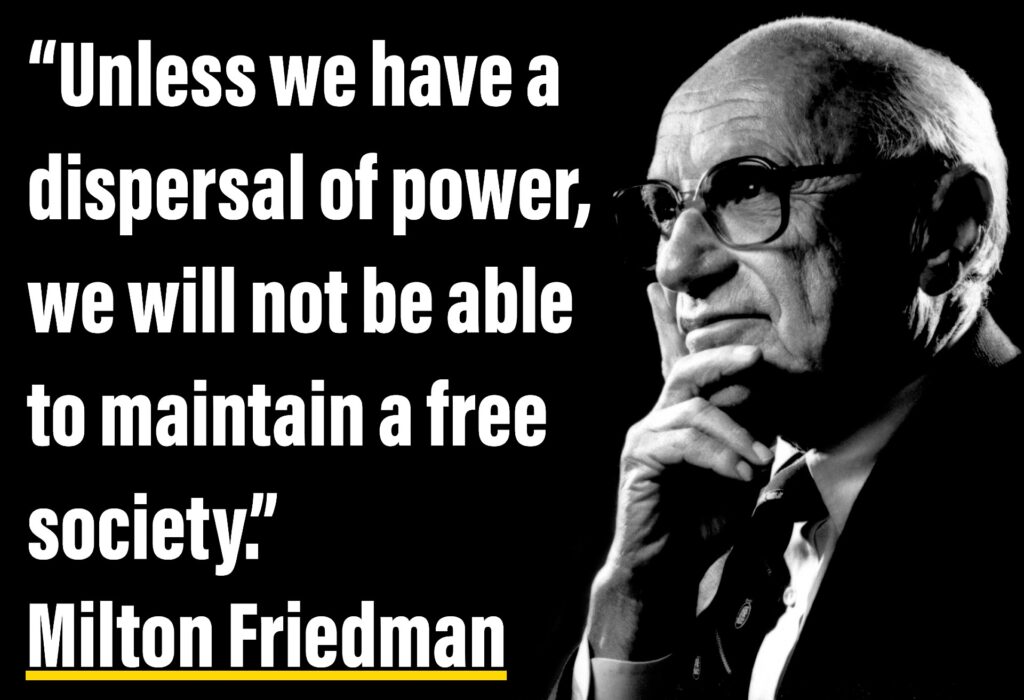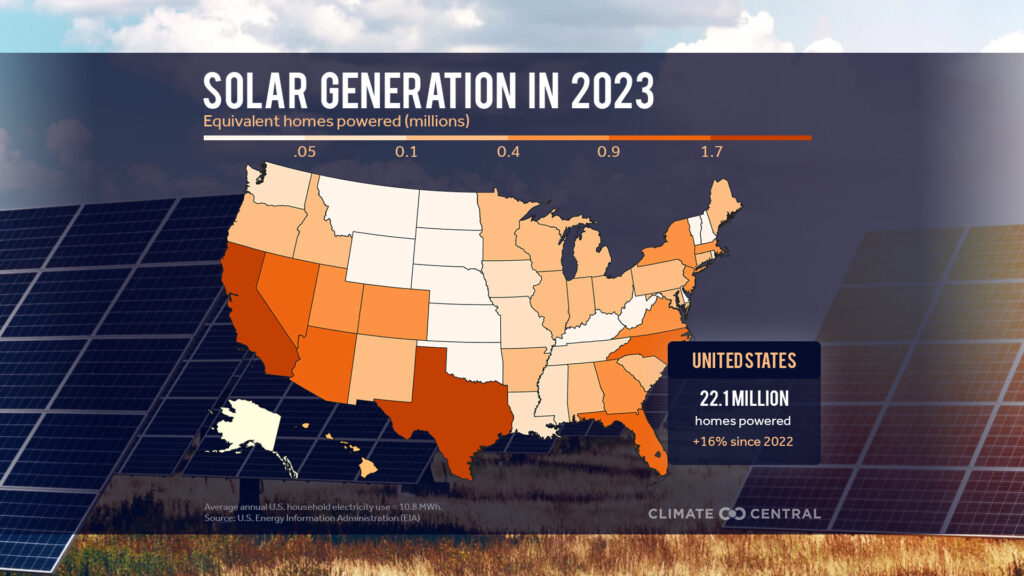
The story of the Alamo is one etched into the American consciousness, a tale of courage and defiance against overwhelming odds that has inspired generations. In 1836, Texian and Tejano defenders faced off against the Mexican army in a siege that would ultimately result in their tragic defeat. But the Alamo’s legacy transcended that single battle. It became a symbol of independence, resistance, and the will to forge a new identity—a sentiment that would fuel the Republic of Texas and eventually shape the ethos of the state and arguably, the United States entirely.
Of note, as the Trump administration manifests over the coming weeks, among many changes is talk of the end of the Department of Education, and while we can debate the merit of changes being made, what we should be is pragmatic about the fact that with changes, we must adjust and rise to opportunity. Texas is among a few states renowned for tackling the question of education head-on, with the November ballot addressing School Choice. “School choice is a term frequently used to describe school vouchers, programs that use taxpayer money to help pay for students’ private schooling.
During last year’s session, supporters pushed for a voucher-like program called education savings accounts, which would give public funds directly to families who opt out of the state’s public education system so they can pay for private school tuition and other education-related expenses,” shared Texas Tribune’s James Barragan, Lt. Gov. Dan Patrick names private school vouchers as his top legislative priority.
I hope what you’re reading between the lines is that Texas is already behind American independence while being ahead of where the country is likely moving.
A Decentralized Federal Government
Recently, President-elect Donald Trump has hinted at a desire to redistribute the federal government’s power base across the country. Speculation abounds over his potential plan to move key federal agencies out of Washington, D.C., aiming to distribute the influence of agencies more evenly across the U.S. Possible relocations include the Bureau of Land Management (BLM) to Colorado and other agencies like the Environmental Protection Agency’s regional offices, the Air Traffic Organization, and the American Indian Environmental Office. This shift isn’t just about administrative logistics; it signals an effort to decentralize decision-making, bringing the government closer to regions impacted by specific policies and reflecting a more locally-driven approach to governance.
Did You Know?
Texas has historically wielded considerable influence over national textbook content due to its large student population and centralized textbook adoption process. Publishers often tailored their materials to meet Texas’s requirements, affecting the textbooks available across the country.
However, recent developments have led to a shift in this dynamic. Advancements in digital publishing and the increasing ability to customize educational materials have diminished Texas’s outsized impact on national textbook content. Publishers, largely thanks to Texas and the innovation seen from there, can now produce state-specific editions more efficiently, allowing for greater flexibility in addressing diverse educational standards across different states.
e-beth, via Twitter/X, sparked the notion among voters, “President Trump is interested in decentralizing the federal government and moving agencies across the country…”
It’s no secret that Texas, long a bastion of independence-minded politics, would welcome such an approach. Yet, Texas seems oddly absent from conversations about potential relocation sites. Colorado has been suggested as a base for the Bureau of Land Management (BLM), and Alabama won Space Command rather than where seems obvious — the nation’s second-largest state and 8th largest economy when compared to nations in the world, with vast geographic diversity…
— and with Elon Musk’s moves, and Vivek Ramaswami’s financial company relocating to Dallas, I’m not going to ask, “Where’s Texas?” because I find that most don’t realize the implications of what’s in Texas. Tied together, Texas, on top of the already strong libertarian values, alignment with independence, and extensive infrastructure for housing major federal departments already in the state. Decentralize Here.
Today, Texas remains a frontier for those who believe in self-determination, often questioning federal oversight and championing a decentralized approach to governance. This spirit has attracted leaders and companies who want to build their own future rather than fit into existing molds. It’s no surprise, then, that this same value system is being invoked in new debates over government decentralization—a move that, if realized, could profoundly alter the role and influence of the federal government.
Texans have long viewed the Alamo as a reminder that freedom demands vigilance, sacrifice, and the willingness to confront established powers.
Article Highlights
- A New Economic and Technological Heartland: Texas
A New Economic and Technological Heartland: Texas
As the country increasingly shifts its focus toward sectors critical to national resilience—energy, national defense, commerce, media, education, and futuristic technologies like space exploration and quantum computing—Texas is uniquely positioned to lead.
Dallas: The FinTech Capital of the World
Dallas has emerged not only as a significant player in financial technology but as a globally competitive fintech capital, reshaping the future of commerce and finance. In North Texas, financial technology companies are crafting solutions that transcend traditional banking paradigms, focusing on innovations that promote financial accessibility, decentralization, and efficiency. This isn’t simply about embracing a digital wave—it’s a targeted transformation that positions Dallas at the forefront of a new financial frontier.
As explored in depth recently here, Dallas is advancing beyond mere trend adoption; it’s becoming a leading source of fintech innovation that rivals the established powerhouses of New York and Silicon Valley. The financial ecosystem in North Texas is both diverse and dynamic, housing key players across sectors like payment processing, digital lending, blockchain, and cybersecurity. From companies offering decentralized finance (DeFi) solutions to pioneers in artificial intelligence-driven financial analysis, the breadth of expertise here showcases a commitment to pushing financial technology into uncharted territory.
Dallas’s fintech ecosystem is characterized by a unique collaboration between major corporations, emerging startups, and regional economic development initiatives that support scalable innovation. With financial giants like JPMorgan Chase establishing a robust presence alongside agile fintech firms, North Texas has created an environment where groundbreaking products can scale rapidly, bridging the gap between Silicon Valley innovation and Wall Street’s financial reach.
Yet, the region’s influence isn’t confined to economic impact alone. Dallas’s fintech sector is increasingly positioned as a pillar of national security, providing financial infrastructure that safeguards economic stability. As the U.S. grapples with emerging threats, from cyber attacks to global financial volatility, Dallas’s fintech industry has proven resilient and forward-thinking. Local companies are developing decentralized financial tools and cybersecurity solutions that not only enhance individual financial independence but also fortify the nation’s financial systems against disruptions.
This unique ecosystem has enabled North Texas to chart its own course, infusing the fintech sector with Texan values of independence, pragmatism, and a commitment to empowering individuals. Here, Dallas is establishing itself as the heart of an emerging, decentralized global financial network that champions financial autonomy, challenges the traditional concentration of financial power, and continues to attract top-tier talent and investment. As such, Dallas is not merely adopting fintech trends; it is redefining them, setting a global benchmark for what the future of finance could—and should—look like in a world increasingly driven by digital transformation.
MOVE TO MAKE? With the new Stock Exchange, cryptocurrency, and the boom of Venture Capital and entrepreneurship in Texas, move The Federal Deposit Insurance Corporation (FDIC), an independent agency created by the Congress to maintain stability and public confidence in the nation’s financial system, to Dallas
San Antonio: America’s Cybersecurity Stronghold
San Antonio stands as the nation’s primary cybersecurity stronghold, a critical hub where military strategy and digital security converge to defend the United States against increasingly sophisticated cyber threats. Known as “Cyber City, USA,” San Antonio’s deep-seated ties to national defense are unrivaled, with an extensive military presence that includes some of the country’s most influential cybersecurity and intelligence facilities. Anchoring this ecosystem is the National Security Agency’s Texas Cryptologic Center, a core component of national cybersecurity operations. As one of only a few NSA outposts across the U.S., the Texas Cryptologic Center brings an elite level of intelligence operations and cryptographic expertise, making San Antonio’s contributions to national defense both highly specialized and essential to securing critical U.S. assets.
San Antonio’s cybersecurity landscape, however, extends well beyond the NSA. The city hosts an impressive array of private cybersecurity firms that have established close partnerships with both federal agencies and private-sector defense contractors. From endpoint security and threat intelligence to advanced network protection, San Antonio’s firms cover a full spectrum of cybersecurity services, creating a robust ecosystem that can respond rapidly to emerging threats. The local industry is supported by a highly trained workforce, many of whom are former military personnel with specialized experience in intelligence and cyber warfare, giving San Antonio a workforce uniquely capable of tackling the most complex challenges in the digital defense domain.
Meanwhile, the Department of Defense has also recognized Austin’s strategic potential, initiating projects in downtown Austin aimed at fostering military innovation, technology development, and collaboration with the private sector. While these initiatives have sparked interest and innovation in defense tech startups, Austin’s burgeoning tech scene cannot replicate the depth of San Antonio’s established defense infrastructure. When it comes to the serious business of national security, including cyber intelligence, military-grade cryptography, and secure communications, San Antonio remains the heart of Texas’s defense operations.
This strategic alignment between government, private industry, and military agencies allows San Antonio to rapidly adapt and respond to the evolving nature of cyber warfare. As threats from state-sponsored actors and international hackers become more sophisticated, San Antonio’s cybersecurity sector is evolving to meet new demands. The city has attracted leading quantum computing research focused on developing quantum-resistant encryption algorithms—a necessity as quantum computing advances threaten traditional encryption methods. By preparing for a quantum-driven future, San Antonio is ensuring that it remains at the cutting edge of cybersecurity, positioning itself to address tomorrow’s threats today.
San Antonio’s role as a cybersecurity leader also supports the country’s broader defense initiatives. With its proximity to Joint Base San Antonio, the city serves as a vital center for the development and deployment of secure technology used across multiple branches of the military. Cybersecurity firms in San Antonio work closely with the Department of Defense and intelligence agencies to innovate defense solutions that can withstand the most advanced cyber attacks, making the city an indispensable asset to national security.
As the only city outside the East Coast with such a concentrated nexus of defense-related cybersecurity talent and institutions, San Antonio occupies a unique and increasingly critical role in protecting the digital landscape of America. It is a city built on security, where the lines between military and civilian expertise blur, creating a collaborative environment that is unmatched in scale and focus. With quantum computing on the horizon, San Antonio’s forward-thinking approach and well-established defense-oriented ecosystem ensure that Texas will continue to be a central player in safeguarding America’s future against cyber threats that could redefine warfare itself.
MOVE TO MAKE? The Department of Defense is synonymous with The Pentagon but with cybersecurity, cryptology, and border security, what should be in San Antonio? The Department of Homeland Security
Austin: The Media Epicenter
Austin, long celebrated as a beacon of creativity and independence, is rapidly evolving into the nation’s most influential hub for media innovation and disruption. Dubbed the “Creator Capital of the world,” Austin isn’t merely a place where creative ideas flourish; it’s where the fusion of technology, culture, and media is redefining how stories are told, consumed, and reshaped for a global audience. With Austin now home to some of the most influential voices and platforms in media, the city is transforming into a vital pulse point for American discourse and a crucial driver of innovation.
The arrival of Twitter under Elon Musk’s leadership in Austin marks a watershed moment for media and free expression in the U.S. Musk’s decision to relocate Twitter to Texas is more than a strategic business move; it’s an ideological choice that resonates deeply with Austin’s commitment to freedom and unbridled innovation. In bringing Twitter to Texas, Musk is cementing Austin’s role in the national conversation around free speech. As a vocal proponent of unregulated dialogue, he has made it clear that Twitter’s platform under his stewardship will prioritize open discourse—a mission that complements the libertarian ethos that runs through Texas culture. The move also reinforces Austin’s appeal to companies and founders eager to operate in a space that prioritizes free expression and challenges conventional boundaries. Musk’s efforts to preserve free speech on Twitter amplify Austin’s position as a powerhouse in media and cultural influence.
But Musk is not the only prominent voice driving Austin’s rise as a center for American media. Joe Rogan, whose podcast draws millions of listeners and features some of the most consequential conversations in the country, relocated his operations to Austin, further solidifying the city’s status as a national stage for thought leadership and innovation. Rogan’s presence in Austin, including his Comedy Mothership, signals more than a trend; it represents a movement of influential voices choosing Texas as the platform from which to shape American dialogue. His success speaks to the unique convergence of tech, media, and a fiercely independent mindset that Austin provides—a fertile ground for challenging ideas and controversial discussions that are harder to sustain in more regulated and ideologically uniform environments like those of the coasts.
Austin’s allure as a tech and media hub has also captured international attention, with global audiences looking to Texas as a microcosm of U.S. innovation. The city’s vibrant landscape of startups and creatives has made it the go-to destination for entrepreneurs, artists, and technologists aiming to redefine their industries. Media companies and digital creators are drawn to Austin for its blend of regulatory freedom, supportive business environment, and cultural inclusivity, which allows for a broader spectrum of voices and narratives than typically seen in established media centers. The combination of low regulatory burden, cost advantages, and an atmosphere that champions bold ideas has allowed Austin to emerge as an ideal incubator for media companies that are rethinking how content is produced and distributed in the digital age.
Austin’s cultural vibrancy fuels its appeal as a home for media disruptors. Known for its music festivals, eclectic art scene, and a collaborative spirit, the city embodies the intersection of technology and art in a way that few places do. This unique cultural ecosystem attracts media innovators eager to explore new formats, leverage emerging technologies, and create content that speaks to diverse audiences. By cultivating an environment where unconventional ideas and risk-taking are encouraged, Austin has transformed into a hub where the next generation of media innovators can experiment freely.
The significance of Austin’s media transformation extends far beyond Texas. As an epicenter of cultural influence, Austin is playing a growing role in shaping narratives that reach every corner of the U.S. and beyond. Its rise as a media powerhouse is reinforcing a shift in the balance of influence from traditional coastal strongholds to the heartland. With platforms like Twitter and voices like Rogan’s now based in Austin, a major voice in American media is emerging from the center of Texas—a voice that champions diversity of thought, independence, and the freedom to question. This shift is emblematic of a larger cultural and political migration toward the values that Texas embodies: a blend of pragmatism, freedom, and resilience that resonates with millions across the country.
In short, Austin is not just a city of creatives and tech innovators; it is becoming the heart of America’s media evolution. The convergence of iconic voices, pioneering platforms, and a distinctly Texan ethos of independence is shaping Austin into a vital part of the national media landscape. As Austin continues to attract entrepreneurs, creators, and thought leaders who value freedom and innovation, the city is on track to be one of the most consequential forces in defining America’s cultural and media future. Through its blend of freedom, tech innovation, and cultural influence, Austin is demonstrating that the future of American media may very well be shaped not on the coasts, but right here in the Texas heartland.
MOVE TO MAKE: With the film industry already moving into and around the Live Music Capital of the World, a hub of startup innovation, with Twitter/X calling central Texas home, The Federal Communications Commission (The FCC) should be in Austin
This Comprises the 35 Corridor of Texas: A Quantum Future and Hyperloop Connection?
Texas’s I-35 corridor, stretching from San Antonio through Austin to Dallas, could become the spine of America’s technological future—a “Quantum Corridor.” Quantum computing, a technology poised to revolutionize sectors from healthcare to finance, is finding fertile ground in Texas. Institutions across the state are ramping up quantum research initiatives, and the potential applications span far beyond what we currently imagine.
Furthermore, The Boring Company’s proposed hyperloop tunnels, potentially connecting Texas’s major urban centers, could reshape transportation within the state. This high-speed transit system would create a new form of regional interconnectedness, allowing talent, ideas, and commerce to flow freely between San Antonio, Austin, and Dallas. Texas’s strategic positioning in these interconnected cities would redefine the concept of regional influence, creating a contiguous zone of innovation that rivals the established East and West Coasts.
The Political Context: Texas’s Divergent Values
One of the most fascinating aspects of Texas’s transformation is the political environment. Austin remains a rare Democratic stronghold in a state that otherwise leans heavily toward libertarian and conservative values. This ideological diversity highlights Texas as a state that welcomes individualistic thinking, fostering an ecosystem where independent thought thrives alongside commercial and technological innovation. The influx of residents from traditionally liberal states speaks to Texas’s appeal as a place where freedom of thought and expression, combined with economic opportunity, create an attractive alternative to coastal cities.
The result of Washington investing here, is a true crossing of the aisle, supporting the creative and liberal culture of Austin, as well as substantial interests of the Democrats here, while making the pragmatic decision of integrating the strengths and experience of Texas’ existing sectors, with our federal government.
A Curious Omission: Space Command Goes to Alabama
Overlooked, we must consider the curious decision to relocate Space Command from Colorado to Alabama. Despite Texas’s strong aerospace presence in Houston and its suitability as a space industry hub, this opportunity curiously bypassed the Lone Star State. While Alabama has its merits, the decision seems puzzling when Texas has invested heavily in the future of space exploration. Perhaps this reflects a reluctance to acknowledge Texas’s emergence as a technological powerhouse, yet Texas’s role in America’s space future is undeniable, even if federal decisions sometimes overlook its assets.
Houston: Energy and the Frontier of Space
While the cities along the I-35 corridor are pushing forward on finance, media, and cybersecurity, Houston remains America’s energy capital and a major player in space exploration. It’s home to NASA’s Johnson Space Center, as well as numerous oil and gas companies that underpin the nation’s energy sector. As the country transitions to renewable energy, Houston has the infrastructure and expertise to lead that transformation.
Houston, the “Energy Capital of the World,” is not only a leader in traditional oil and gas sectors but is also spearheading the nation’s transition toward renewable energy and space exploration. This transformation is uniquely underpinned by policy and regulatory frameworks in Texas that align with the state’s values of economic autonomy, minimal government interference, and pragmatic innovation. Houston’s blend of established energy infrastructure and a robust business ecosystem places it in a prime position to guide the country—and, by extension, the world—through the complexities of energy transition and space exploration.
With policy and oversight designed to incentivize innovation rather than restrict it, Texas has created an environment where energy companies can experiment and expand into renewables on a large scale. The solution to the challenges of climate change, are in Texas; despite many perceiving that perhaps Texas’ focus on oil is one of those challenges. Texas’s regulatory approach enables the state to remain agile, responsive, and unencumbered by heavy-handed mandates that often hinder similar efforts in other parts of the country. This approach has already paid dividends: Texas led the nation in solar growth between 2022 and 2023, with a 37% increase in solar capacity and a 25% rise in solar power generation, according to Climate Central’s “A Decade of Growth in Solar and Wind Power.”
Houston’s rise as a leader in renewables isn’t just beneficial to Texas; it sets an example for the nation and the world, demonstrating that large-scale energy innovation can thrive when policies encourage efficiency, experimentation, and market-driven solutions. Texas’s regulatory philosophy champions the alignment of economic incentives with environmental goals, allowing companies to pursue clean energy advancements while maintaining their profitability. This balance serves as a global model for achieving sustainability without sacrificing economic growth—an increasingly relevant example as nations worldwide seek pathways to transition their energy economies in ways that support jobs and growth.
Houston’s role in space exploration further illustrates Texas’s far-reaching impact. Home to NASA’s Johnson Space Center, the city is deeply embedded in America’s legacy of space exploration. Yet, with the growing involvement of private space companies, Houston’s influence is expanding. This city is now at the heart of a commercial space era where private and public sectors collaborate on everything from space tourism to lunar exploration and deep-space missions. Texas’s favorable regulatory environment, tax incentives, and willingness to support private ventures are attracting space companies to the state, fostering partnerships that could make Houston one of the world’s most important launchpads into the economic opportunities of the final frontier.
In a world where resource management, energy independence, and sustainable exploration are becoming crucial, Houston’s policies and incentives allow for innovation that doesn’t just benefit Texas but sets a standard for responsible yet ambitious growth. By aligning regulation with the state’s values of free enterprise, Houston is not only leading America’s energy and space sectors into the future but is helping shape a global economic landscape that respects both profitability and sustainability.
The New American Heartland
Texas’s Alamo legacy is one of resilience, independence, and vision—traits that resonate deeply as the state becomes the country’s new heartland for technological, economic, and national security leadership. With major hubs in finance, cybersecurity, media, as well as in energy and space, Texas has the critical infrastructure and cultural ethos needed to drive America’s future. As we approach a new chapter, Texas’s values, resources, and commitment to independence position it to lead on issues fundamental to the nation. Texas isn’t just a part of America’s history; it’s an essential part of America’s future. Decentralize here.







Great essay Paul!
Tremendous essay my friend! I walked by the Alamo last Sunday while in S.A. for a conference. As always for me, and I suspect many, many Texans, I got choked up. It will always be an emotional place. Texas is the future!
Texas!!!
So do you recommend we move the capital from DC to Dallas or Austin?
Adam Lupu oh come on now, don’t do me like that and put me on the spot! Can I say Waco?
A few different ideas that I like in here. One the idea of decentralizing DC. I am all for moving the various federal agencies to different parts of the US. Two leaning into the first principles of the various ecosystems and what makes them tick.
Austin’s core ecosystem is being powered right now by Yes And or convergence specially the convergence of atoms and bits as shown with our robust ecosystem in defense tech, hardtech, adv mfg, space Bio & Health, robotics, AI in the real world, etc.
I asked ChatGPT what Federal agencies it would recommend moving to Austin based on those strengths and it said: DARPA, NIST, NSF, ARPA-E, NIH, USPTO, CISA, Manufacturing USA Institutes, NASA’s & Tech Transfer’s Program.
Paul O’Brien what do you think?
I don’t think all those senators would want to work in Waco… the tacos aren’t nearly as good. But imagine a world where the White House was moved to Austin. The president would be way more centrally located relative to the American people and they/them could watch the border wall way more closely.
Jason Scharf I really dug into IF I could agree with…
1. NASA & Tech Transfer. MAYBE… hard to truly argue *not Houston* But at the same time, I’m surprised Space Command went to Alabama since all the military / space stuff is already in Texas.
2. NSF. Just can’t see it. Makes more sense, to me, in the North East.
3. NIH… yes. I almost went so far as to say put RFK Jr. and the FDA here because of both AgTech and the medical innovation in Houston / Austin / San Antonio. Plus Austin’s booming food industry.
4. DARPA I thought about but look, every Gov initiative keeps trying to be in “Austin” because of the hype and they all walk away disappointed because, frankly, they didn’t do their homework to realize that very little deep tech is actually in “Austin” – put it in N. Austin or as part of my Quantum Corridor thesis, and MAYBE,
5. CISA sure, but it seemed U.S. Department of Homeland Security was the more meaningful and possible move, to San Antonio — bringing with it the related CyberSecurity focus
I hadn’t thought of NIST, shame on me. Hey National Institute of Standards and Technology (NIST) – check out San Antonio! But too, this is pointing out why *something* needs to be done – how many “cyber” branches of government do we need??
USTPO needs to be burned to the ground, my two cents
ARPA-E yes. but my goal was the focus on the 35 corridor so while I touch on space and energy for Houston, I wanted it a second thought. Same same for why I left out NASA.
Manufacturing USA Institutes… hadn’t even dawned on me.
If Elon has his way you’ll only need a few Cybertrucks to relocated the staff that will be left.
Steve Jennis the new Twitter offices are a lot smaller than I expected
This is a really great read by Paul O’Brien
Long Texas ….Short the coasts….
Bos>Aus>Hou
8 years in TX. Great read!
Cheers Tyler, thank you for sharing and great way to put it > long Texas
Thank you Jay!
Since you weren’t satisfied ? , I asked ChatGPT to keep going
Department of Commerce – Economic Development Administration
Small Business Administration
Department of Transportation (DOT) – Intelligent Transportation Systems Joint Program Office (With our growing Autonomous vehicle growth, I think this could be right)
Department of Homeland Security (DHS) – Science and Technology Directorate (This feels right with all the defense tech)
Environmental Protection Agency (EPA) – Office of Research and Development
Federal Communications Commission (FCC) – Office of Engineering and Technology (I say move them here and then let starlink and SpaceX just smack them around.)
National Oceanic and Atmospheric Administration (NOAA) – Climate Program Office:
Department of Education – Office of Educational Technology (Just end this dept and let locals decide)
Department of Energy (DOE) – Renewable Energy and Energy Efficiency Programs
U.S. Geological Survey (USGS) – Innovation Centers
Jason Scharf DARPA ain’t going anywhere, not with USNA right there in annapolis 😉 for feeders.
Kimberly King-Burns I am just writing what ChatGPT said. I think we will all be surprised what is on the table
good article on the intuitive redistribution of agencies. but having worked with JPL and NASA on umpteen tech projects over the years, alabama is a far better fit for SPACE command, given the concentration of post-WWII to today genius in huntsville AL. i’d rather see texas be at the forefront of clean tech — wind, nuclear, hydrothermal, red mercury — given all of the space that y’all have yet to grow into. as for the future of cleantech crypto mining, y’all still have a long way to go regulations-wise.
see you soon, here or there!
Kimberly King-Burns this is a wonderful addition to my thoughts because I loosely agree with you. Notice, I kind of included Houston as a second thought, with my focus being Dallas, San Antonio, Austin, precisely because I’m not certain of the love/hate relationship Oil has with CleanTech and for some reason, Space isn’t as strong a focus as one might expect, in Houston.
Now, that said, I confess, it’s because I’m uncertain WHY.
I can see FinTech, Media, and Cybersecurity, being nearly ideal through Dallas, Austin, and San Antonio respectively… and “Texas” is a dominant participant in energy and space, but why isn’t Houston the obvious epicenter where some Administration departments should locate? I can’t really say.
An idea that’s long past due, WDC has become an echo chamber of the Uniparty and no longer best serves the interests of US Citizens in all 50 states! Definitely NOT what our founding fathers had in mind, I’m actually looking forward to getting rid of the bureaucratic bloat that exists, and streamlining most, if not all government agencies.
I believe that Texas has been ignored exactly because of your Libertarian/Conservative leanings, so your many points are both timely & make a great degree of sense.
May the people who should see this, SEE IT!!!
I’d offer Austin and the Texas Triangle (@Texas A&M) is far more than described. There is a thriving and growing innovation ecosystem. National security is a large part of it as well as VC funding, incredible academic and government support and multiple other verticals. Love the post Paul. Just my unsolicited 2 cents.
John O’Grady oh it certainly does, and indeed more so with College Station.
What I think needs to come into play more substantially for the entirety of the Triangle to boom as such though, is that The Boring Company and Elon, or frankly, TxDot (cc Marc Williams), Amtrak, or the Texas Transportation Commission (cc Alex Meade and Steven D Alvis), need to connect the cities and cut the commutes to nothing.
The money is coming in for high-speed rail, it’s just haphazard (in my opinion); and when that effectively connects the Triangle, to cut 3-hour commutes in half, the region will be one of the most significant regions in the world. Unfortunately, the local commuter airline lobby keeps fighting it (and maybe the Department of Government Efficiency’s transparency initiative can expose that and get people pissed off at the airlines).
https://www.kbtx.com/2024/09/05/amtrak-secures-64-million-grant-texas-high-speed-rail-project-possible-depot-brazos-valley/
Great ideas. Space Command needs to realize that space assets are no longer a government-only domain. Commercial space is the future and, for the United States, the reality today. The Commercial Space Epic Center is in Texas.
David not only that, with all the DoD investment in San Antonio and Austin, plus the heavy presence of military in South Texas, I’m frankly not clear why it doesn’t make more sense to have Space Command in the region (granted, I’m ignorant; that’s why I’m pointing out that I don’t understand – maybe someone will explain it)
Long but really interesting perspectives around a physical decentralization of the federal government away from DC and what’s happening with certain industries in Texas.
Rusty Shelton Rusty Bacon Ryan Frederick Mark Urdahl Timothy C. Donohue Mike Sharrow Jay R. Lucas, CCIM Daniel Perumal Joel Trammell Lou Gonzalez Benjamin Lehrer Jeff Sober Kevin Miller Vince Cirianni Vincent Paladini Jeff Dyck Joshua Hares Terrell Gates
Nicholas Alter we might appreciate that IF indeed the internet causes transparency and enables remote work AND if Washington is representation of the states, then the federal government should be decentralized – they work for us, not for one another.
Speaking of Texas and “decentralization”, here’s a fun fact: AFAIK the Texas’ Constitution has a provision (?) that allows the state to break up into five states. Maybe it’s six?
Given that TX leans Right, I often wonder why this has never happened, as it would certainly tilt things at the Federal level further to the Right. But then again, why bother? The Left can’t get out of its own way and find itself. The answer to that seems to be “Go further Right young man. Go further Right.” Today’s “Progressive” is a moderate Republican of 25+ years ago.
Sure we have two parties, but it’s getting to be a very mono-view of possible solutions. Makes for great politics I suppose, but ultimately, groupthink is not a positive over the long run.
/rant
Mark Simchock likewise, most people I know and have asked agree that California should be split North and South.
Is the unwillingness to split because of State governments? Is it the Fed prohibiting it? If so… that’s an intriguing insight. Are there legitimately good reasons to stay unified or is it political/power?
Great post, as usual
All incredible and pragmatic ideas that certainly would help to accelerate an already incredibly friendly business and startup environment from a people , policy and regulatory standpoint.
my oil partners have long been major champions of clean tech, whether it means reformulating methanol for a more valuable fuel or joint-venturing with hydro and solar around the world, or building out a cleaner ports. as for fintech, i’d prefer austin to remain USA ground zero: houston has too many uncontrollable scams that they haven’t been able to tamp down over the years, and defi is about to have a lot of newbies wandering around the park, whether ETF managed or not.
And just wait when the Texas Legacy Fund starts rolling. So many things support the notion that ‘What’s next’ can be found in Texas.
Among many things, you’ve neglected that Army Futures Command is based on Austin.
Also, there continues to remain the question of the use of Space Force to aide Space Command. Is Space Force superfluous? Some people wonder why it exists as in some ways (many ways), it duplicates the USAF.
Jay A. Fraser in fairness, I didn’t neglect it, I can’t cover everything in what is already close to 10 pages of content ?
That said, you’re not wrong about the implications AND duplication
Word on the street is that entire thing in Austin needs to be reworked, in large part because most military related innovation isn’t downtown, most Veterans aren’t downtown, and the program doesn’t work closely with existing (substantial) private sector military-oriented incubators and accelerators.
That’s just what I hear… but it is why I discounted it a bit in trying to make my point, and why I agree with you that it’s duplicative.
WOW! Well put in a concise way! We hope to see the City of Fort Worth become a leader of our own in various ways! Our time to develop various ecosystems is here for all Texans!
Startup Weekend Fort Worth I have some thoughts that… let’s get there!
You’ve just made the case for the Texas Triangle of Transformative Technology (T4) solid. There is more, I think, that I have collected to strengthen your case. Go forward and multiply!!!
@Houston has so much more potential than just energy tech. Hoping we can recast our identity.
And most of the Alamo story is a myth based on the John Wayne movie. The defenders were given several opportunities to leave unharmed. Women and children did leave. The land was Mexico’s, they were, or should have been Mexican citizens. Hence, they were rebelling against the lawful authorities.
That aside, the Austin-San Antonio corridor is ripe for innovation and entrepreneurship.
Decentralizing some agencies may make sense, but many do belong near the center of power: the pentagon, irs, and commerce comes to mind that need to be three. HHS, FDA, Agriculture would be possible candidates in my opinion.
Cheers Bill, that only reinforces the increasingly understood point that storytelling can accomplish anything. And, agreed.
interesting take/read, but where it falls flat for me is relating it back to the alamo. That story has been told to us as if the Texans were heroes, but they weren’t, they were immigrants trying to take over a part of Mexico.
I’m missing how you read that (and I don’t want to misspeak or misrepresent). I said, “In 1836, Texian and Tejano defenders faced off against the Mexican army in a siege that would ultimately result in their tragic defeat.” That’s merely a statement of fact. It did become a symbol that become the Republic of Texas, and then inspire Americans, I’m not going to rewrite history. And it is a tale of courageousness and defiance against odds.
They can be both heroes and immigrants trying to take over part of another country. History isn’t as black and white as people tend to make it out to be.
We live in a state that can claim great wealth but cannot — or continually refuses — to provide or maintain a first-world level of infrastructure for all its people. The electricity grid? Suspect. Water? Frightening, certainly in the medium term. Health care? Outside of a few urban and especially suburban centers, not so great. Education? Certainly some highlights (and Friday Night Lights) but, again, it depends where you are.
The negative freedom it extols is great for some but just plain neglect for, probably, most. The “New Texas” is essentially the old Texas with better tech and better toys.